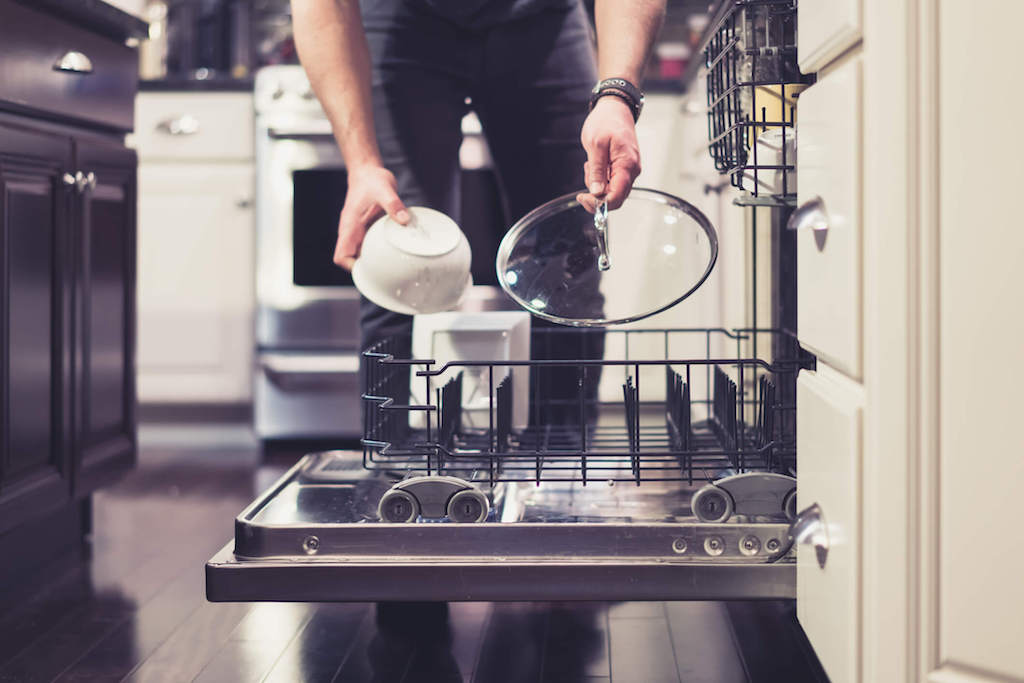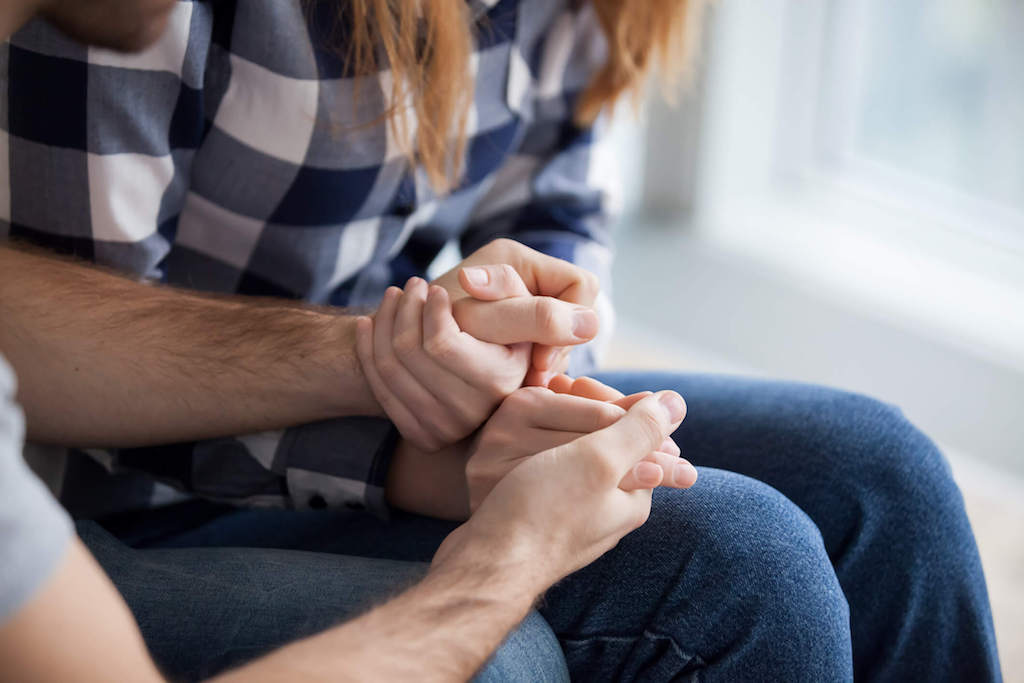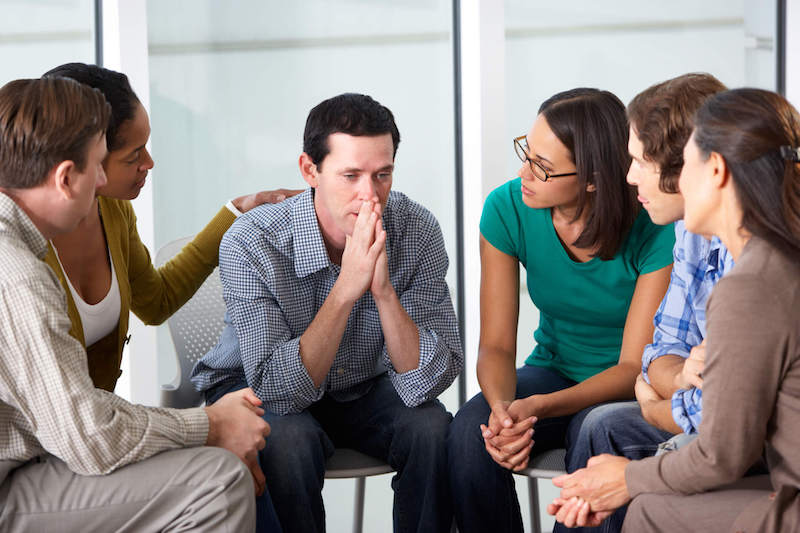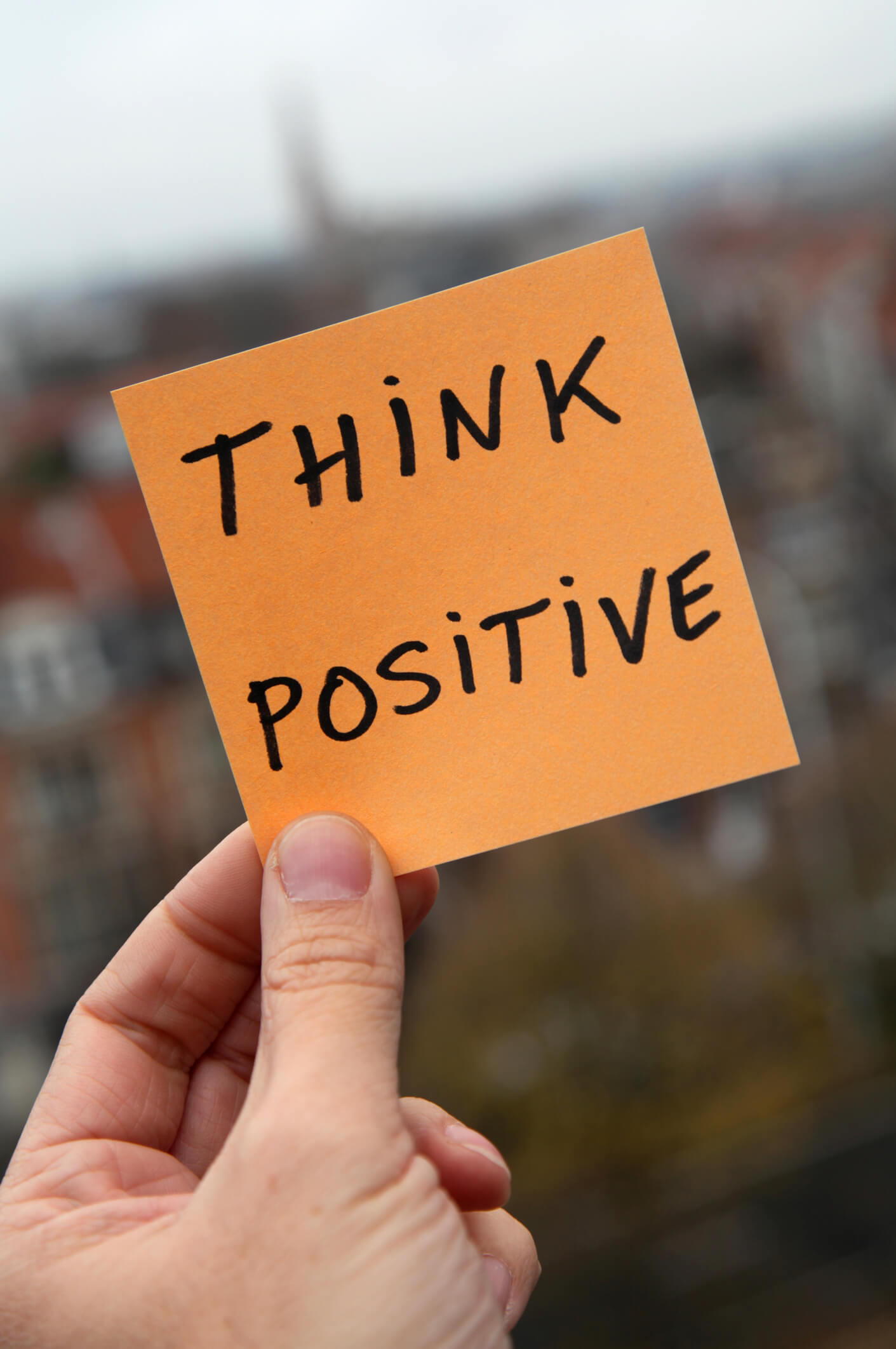Supporting someone suffering from environmental exposures, like mold and its byproducts, may seem daunting for a number of reasons. You could be living in the same house, but not experience any symptoms. It may be a topic you’re unfamiliar with. You might be irritated at the difficulty in diagnosing the problem or lack of medical support.
The list can go on for potential problems. At the heart of the chaos, though, all your friend, spouse, or family member is looking for is someone to support them. To stand beside them during the days of painful symptoms, psychological torment, and general uncertainty.
Learning to be this supportive foundation is the best first step towards helping your favorite person get through this difficult time in their life.
The journey to get there may just be a little rockier than you both would care for, but the important thing to remember is that healing is possible.

Believe Them
Unfortunately, environmental factors are rarely considered when dealing with unknown illnesses and persistent symptoms. Many individuals suffering from unknown causal factors will go to doctor after doctor, receiving answers that may look like the following.
- “I don’t know.”
- “There’s nothing wrong with you.”
- “Take these prescriptions.”
- “It’s a (insert vague idea) problem. You just have to live with it.”
Hearing those non-answers can be demoralizing. Knowing you feel a certain way but not having the key to fixing the problem or even worse, not being believed, can be isolating, make them think they’re crazy, or trigger a long list of negative psychological effects. That’s where supporting those suffering from environmental exposures comes into play.
The first and best step you can take is to believe them. This is also a two-part system. It involves: a) believing that their symptoms exist in the first place; b) believing that the environmental trigger (like mold exposure) is the culprit behind their failing health. Sounds crazy because it’s so simple, right?
Most individuals suffering from environmental triggers like mold exposure often say one of the worst parts of their experience was not having a support system that believed they were actually suffering and that environmental culprits like mold were the cause. At this moment, you may be thinking, “I’ll always support and believe my favorite person. That’s easy.”
When you break it down, though, it’s a bit more convoluted than you think. You may be living in the same house as them and not experience any symptoms. If you’re not experiencing them, how could the other person? The exposure-induced illness might be something you’ve never heard of, and it may be difficult to wrap your head around a new concept. Going against the grain and not believing doctors (when you’re not experiencing the symptoms) can sound like a novel and discouraged idea. After all, we’re taught to believe in and trust our doctors.
The list can go on.
The key aspect to remember during this time is that the person you’re supporting is not feeling well. They’re scared, they’re hurting, they’re desperate for answers, and they need someone in their corner helping them advocate for their own health. Above all, they just need someone to believe them. That’s where you can come in. There might be some growing pain at first, but just remember what the goal is: helping them feel better.
Dive Into Research
Part of helping you believe in the unknown, and helping your significant other who is struggling, is to bury yourself in research. Be an encyclopedia of their symptoms and environmental factor(s) affecting their health.
When it comes to mold exposure, unfortunately, it can be doubly difficult. There is a massive amount of misinformation out there, including the belief that mold exposure doesn’t cause failing health unless it’s a toxic mold like the infamous “black mold.” That is absolutely not true. The thing about mold is that it affects everyone differently. Species, the ability to create microscopic toxins called mycotoxins, exposure levels, genetics, and preexisting conditions all play a role in how sensitive an individual is to indoor mold growth and poor air quality. You could live in a home with mold growth and poor indoor air quality and only experience the occasional runny nose or brain fog. Meanwhile, your significant other’s health could steadily decline until they only feel like a shadow of their former selves. It all depends on the person.

By becoming an expert on the topic, you’ll not only be able to help wrap your mind around what your favorite person is experiencing but also help them navigate the long journey that can be healing. Make sure you’re looking at the science, though, because you can find conflicting evidence about anything. Especially mold exposure! Doing well-rounded research can help you more easily spot comments, opinions, and suggestions that don’t add up.
This step can also help decrease any resentment or negative feelings you may experience towards this situation. All of which is okay! It’s difficult to accept something you don’t understand, and mold exposure illnesses can come with a hefty price tag, changes in your favorite person, a whirlwind of emotions, and alterations to the normal. These experiences can easily make you feel out of control and unsure of how to handle the situation properly.
Creating a roadmap in your head of how mold exposure could happen, what it can cause, how it affects your friend or family member, and the steps needed to eliminate the problem helps settle the turbulent thoughts in your brain so you can focus on what’s needed most: supporting someone suffering from exposure. When in doubt, or if you can’t find the answers to your questions, reach out to experts. Those individuals could be in the air quality industry, mold remediation, functional medicine, or even others who have gone through similar experiences. You and your significant other are not alone!
Be The Helping Hand

Mold exposure can cause a wide variety of symptoms.
From slightly irritating:
- Coughing
- Runny Nose
- Fatigue
- Headaches
- Rashes
- Brain Fog
To more severe:
- Respiratory Issues
- Digestive Problems
- Neurological Issues
- Psychological
- Chronic Fatigue
At the end of the day, the immune systems of those who are suffering are run down, tired, and failing from the continual battle they’re waging against what they consider foreign invaders (environmental triggers). When that happens, these individuals are similarly bogged down, which can result in their inability to complete daily tasks.
Finding ways to help them during this time can make a world of difference. This could include helping out around the house, offering to take care of any children, going grocery shopping, or a number of other actions. Everyone is different, though. Some people will let you know what they need help with, and others won’t want to seem like a burden. When it comes to helping the latter group, try offering to help with specific tasks instead of just leaving the question vague like, “What can I help with?” Ask these individuals if they need anything from the grocery store because you’ve decided to go. Or, if their symptoms are particularly bad one day, if a heating pad or dark room will help alleviate their pain.
Later on, this can include helping in the healing process. Cooking food that supports their detox plan, refilling supplements, and helping them maintain a healthy lifestyle can be the helpful push they need to begin feeling better. The body is fully equipped to heal itself, but it’s much easier when there’s a foundation of support to help.
These steps may seem small, but when you’re mentally and physically exhausted, not to mention experiencing painful symptoms day in and day out, doing small chores around the house or cooking with a limited ingredient list may seem like an impossible feat. Having someone there to help can help them focus on finding the answers and healing.
Push For Answers
This step ties in both the belief, research, and helping hand aspects of supporting someone suffering from environmental exposures. Being your own health advocate is difficult. As mentioned earlier, we’re all taught to trust in the medical community. They don’t always get it right or are able to pinpoint what’s wrong, though.
Diana Dencker, a Health Coach and guest on Mold Talks, said she went to over 200 doctors before finding the answer to her symptoms: mold exposure. Environmental triggers just aren’t something we as a society think of when it comes to reasons why our bodies are not operating at their best. Being involved in this diagnosing phase helps in a multitude of ways. Those suffering will know they are not alone. You’ll be able to provide any gaps in information your favorite person may have forgotten (brain fog from mold exposure is a beast of a thing). Two health advocates in the room are always better than one. And, you’ll get a full rundown of what the healing process will involve, once they determine the environmental factor that caused the problem in the first place.

That last part is incredibly helpful because healing the body from environmental conditions like mold exposure takes time. The body needs to properly get rid of those built-up toxins, which requires steps like diet changes, liver detox programs, and supplement regimens. Such extensive healing doesn’t just happen overnight. Knowing the process will allow you to help them on their journey and ensure they easily stay on track for success.
This is also where your research will be beneficial. Once you know what the environmental trigger was, you’ll know what needs to be eliminated so that your favorite person can heal properly. Not removing the issue that caused the problem in the first place means the detoxification stage will not be as effective and the individual will continue experiencing symptoms. The exposure will just keep happening.
If that trigger was indoor mold growth and poor air quality, this means finding the exposure source, which could be the home or place of employment. When that source is the home, removing the mold through remediation will more than likely be required. If it’s their place of employment, that could involve leaving that job. Both scenarios are daunting tasks and will probably occur while they're attempting to heal the body. It’s a tall order to fill! That’s why actively supporting someone suffering from environmental conditions is so important.
Be Understanding and Patient
From the lack of answers initially and not understanding the issue to the cost of medical bills and removing the environmental trigger, supporting someone suffering from environmental exposures can be stressful. It’s a trauma-packed time filled with uncertainty, misinformation, and exhaustion.

These feelings are doubled for those actually experiencing the symptoms. Many individuals said they often felt depressed, guilty, and anxious all while being in pain. From feeling bad about experiencing the symptoms in the first place while others didn’t, not being able to live life normally, not being able to be a present parent, and the costs associated with finding the answers and healing, it’s not the best situation for creating positive mental spaces.
That’s where you can come in. Try your best to practice empathy. It may seem difficult or seem impossible at times, but actively attempt to place yourself in their shoes. Be the one who assures them this whole process is okay. Listen to them vent. Distract them when needed. Try to understand the pain and confusion they’re going through. Acknowledge your biases. Hold their hand. Accept the change. Be their emotional and supportive anchor.
When in doubt, add learning how to be more empathetic to the list of research topics you dive into. Keep in mind as well, suffering from mold exposure is more common than you think. Watching Mold Talks is a great first step towards creating a better mental space to help you be more patient and understanding. Reaching out to these individuals or others who have experienced similar situations can also be helpful. Ask them your questions and seek advice. It’s okay to not have all the answers! They were the ones in the thick of mold-related illnesses, so they’ll be able to give you helpful insights that someone still suffering may not be able to provide.
Don’t Forget About You!
Supporting someone suffering from environmental conditions can seem like a full-time job. So, don’t forget to make time for yourself during this stressful time.
Finding support groups or other individuals who have been, or are going through, similar situations can be incredibly helpful. You can vent your frustrations, hear others’ stories, and release all of that pent-up anxiety. These individuals will be able to sympathize and offer compassion because they’ll know exactly what you’re going through. They can also offer advice, provide helpful facts you didn’t find while researching, and give tips from their personal experiences.
Accepting your feelings and emotions during this time is also incredibly crucial so they don’t get bottled up and turn into resentment.

You’re allowed to be stressed out, sad, frustrated, and angry at the situation. It’s a stressful, sad, frustrating, and anger-inducing situation! Your favorite person is being affected by an unseen threat and is probably going through the wringer trying to figure out why. That’s a tough pill to swallow. Not to mention the monetary cost it can take to heal and remove the environmental factor that led to the issue in the first place, which can be incredibly stressful for a spouse or child.
Mold exposure, for example, can be an expensive trigger to deal with and remediate. Remember to tackle it in bite-sized steps, though. Not every situation is the same, and it’s not always possible to 100 percent remove the contamination from a home at the drop of a hat. Target the main problems first, and then take on the next steps when you’re able.
Make sure to take time for yourself during this process as well. Read a book, go on a walk, watch your favorite show, or grab lunch with a friend. Give your brain the break it needs so you can come back rested and recharged to be the support your family member or friend needs. It’s okay and necessary to just take a minute. Otherwise, you’ll be just as exhausted, rundown, and psychologically impacted as they are.
Above all, ask for help when you need it. Whether that be from a friend, family member, medical practitioner, or someone from your support group. You don’t have to be superman or superwoman and do everything on your own. So whether you need someone to watch the kids while you go to the grocery store, or aren’t sure how to make a menu that’s detox-friendly, reach out for assistance. “It takes a village,” after all.

Don’t Give Up
If you ever find yourself struggling, just remember the person you knew before they were sick. They’re still in there, they just need some help getting back to their normal self. Also, consider the help and support you would hope for if you were going through similar circumstances. Be the person you would want in your corner. Most importantly, never give up on them and their healing journey. Visualize them getting better and do everything you can to make it happen.
Because healing is possible. You may hit a few bumps and dead-end roads to get there, but eventually, your friend or family member (and you, their support system!) will get there. You just have to maintain that positivity, persistence, and hope. Happiness and healthy living are just around the corner.

